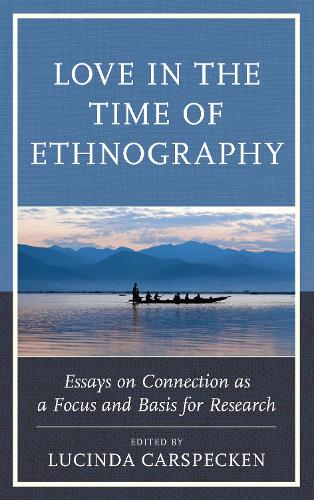
Love in the Time of Ethnography: Essays on Connection as a Focus and Basis for Research
(Hardback)
Publishing Details
Love in the Time of Ethnography: Essays on Connection as a Focus and Basis for Research
By (Author) Lucinda Carspecken
Contributions by Lucinda Carspecken
Contributions by Phil Francis Carspecken
Contributions by Jana Clark
Contributions by Barbara Dennis
Contributions by Adam Henze
Contributions by Peiwei Li
Contributions by Ian Skoggard
Contributions by Leslie E. Sponsel
Contributions by Frances Trix
Bloomsbury Publishing PLC
Lexington Books
15th November 2017
United States
Classifications
Professional and Scholarly
Non Fiction
Social and cultural anthropology
Sociology: family, kinship and relationships
305.80072
Winner of American Educational Research Associations (AERA's) Qualitative Research Special Interest Group's Outstanding Qualitative Book Award.
Physical Properties
Hardback
246
Width 159mm, Height 236mm, Spine 22mm
490g
Description
Love in the Time of Ethnography explores love variously defined as an important facet of human life and a worthy focus of study. The authors look at love in association with an Alevi and Sunnicouple in Turkey, organizers of Mexican American and immigrant youth movements, Christian missionaries in China, an elderly man with dementia, two women coming home to queer identity, a White researcher working with Black women in the US,the common ground between DgensZen teachings and Habermas's critical theory, an Albanian Sufi community in Michigan and interactions between humans and the natural world. It also includes theoretical writing on the place of love in social analysis, whether this involves relationships between researchers and participants or the nature of human connection itself. The authors argue thatsocial research is an affective process as well as a cognitive one, and that fellow feeling is an essential component of making sense of the world. Along with more traditional scholarly forms, the contributors to this book use auto-ethnography, life stories, archival research and poetry, noting that style itself conveys information and emotion. Writing is always to some extent partisan. While anthropologists and other social researchers have explored this idea over the last few decades, they have moreoftenexplored it withan eye to critiquethan to the ideals underlying that critique. This is a collection of essays about what ethnographers are aiming for as well as the problems they address, and the authors discuss ethical principles like agape, hizmet and cario as rationales for ethnography and rationales for social change.
Reviews
Lucinda Carspecken has brilliantly gathered a collection of ethnographers who take readers on an intimate scholarly journey in Love in the Time of Ethnography. She extends to us a different approach to ethnography that is not found elsewhere. This unique approach to social research centers on lovewhere love is simultaneously epistemological, ontological, axiological and topical as it is woven through every aspect of the scholarship. It hinges uponand is the hinge thatmakes the scholarly work (of the world) move. -- Penny Pasque, North Carolina State University
Author Bio
Lucinda Carspecken is lecturer in the Department of Counseling and Educational Psychology at Indiana University.
